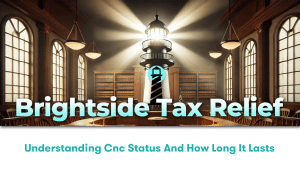Understanding IRS Installment Agreements
In the realm of tax resolution, the IRS Installment Agreement surfaces as a flexible and accommodating option for taxpayers grappling with tax liability issues. Brightside Tax Relief LLC brings to you an insightful exploration into the dynamics of IRS Installment Agreements, hesitating not to spotlight how these agreements operate and the pivotal role they play in tax resolution strategies. The intention is to expand your knowledge on this topic and guide you towards making an informed decision should you find yourself in an unexpected brush with tax debt.
The Core Concept of IRS Installment Agreements
Lets dive right into the heart of the matter. An IRS Installment Agreement can be comprehended as a contract reinforced between the taxpayer and the IRS, designed to pay off a tax debt over a certain duration. In essence, it’s much akin to a monthly payment plan, enabling taxpayers to discharge their tax liability in manageable monthly payments. Importantly, these agreements prevent taxpayers from shouldering the full burden of their tax debt in a single, potentially financially crippling blow.
Furthermore, IRS Installment Agreements bring the additional upside of alleviating the potential stress and annoyance induced by ceaseless IRS collection activities. Once you’ve entered into an IRS installment agreement, the IRS agrees to cease further collection activities, providing you much needed peace of mind.
Finding the Right Type of IRS Installment Agreement
Upon understanding what an IRS Installment Agreement is, it is equally crucial to discern the various types of such agreements and find the one that best suits your individual circumstances.
Here’s an overview of the various types of IRS Installment Agreements:
– Guaranteed Installment Agreement: This variant is available for individuals owing less than $10,000 excluding interest and penalties. The taxpayer must commit to pay off the entire tax debt within three years without any defaults.
– Streamlined Installment Agreement: For this agreement, individuals must owe $50,000 or less while businesses must owe $25,000 or less. Repayment terms can extend up to 72 months.
– Partial Payment Installment Agreement: As the name suggests, this agreement enables taxpayers to make partial monthly payments, which may result in a portion of their tax debt being written off.
– Non-Streamlined Installment Agreement: This is designed for taxpayers who do not fall within the boundaries of the other types of agreements. These negotiations can be complex and typically require professional assistance.
Benefits and Limitations of IRS Installment Agreements
On the beneficial front, an IRS Installment Agreement permits taxpayers to steadily chip away at their tax debt in bite-sized monthly payments, making them manageable and less overwhelming compared to an immediate lump sum payment.
Moreover, an IRS installment agreement stops the IRS from implementing any aggressive collection activities like wage garnishments or bank levies, providing a cushion and much-needed respite to distressed taxpayers.
On the flip side, the downside to IRS Installment Agreements is the accumulation of interest and penalties until the complete tax debt has been paid off. These additional charges can end up inflating the total amount significantly.
Obtaining an IRS Installment Agreement
The process to obtain an IRS Installment Agreement involves submitting an application and detailing your financial situation to the IRS via certain forms. The complexity of this process varies based on the type of agreement, the amount owed, as well as your current financial condition. Certain cases may necessitate qualified tax resolution expertise to guide taxpayers through the complexities of the application process.
For more details, you can visit the IRS website’s page on “Payment Plans, Installment Agreements”.
Ensuring Success with IRS Installment Agreements
Once an IRS Installment Agreement is in place, paramount importance needs to be attributed to making all your monthly payments punctually to avoid defaulting on your agreement. The IRS can terminate your agreement in case of failure to stay current on your tax liabilities during the term of your agreement. This path invites the IRS to resume their collection activities, placing you straight back into the hot seat.
Final Words on IRS Installment Agreements
An IRS Installment Agreement serves as a lifeline for taxpayers faced with overwhelming tax debt, enabling them to repay their indebtedness gradually, without destabilizing their financial well-being. However, navigating the intricacies of this payment plan cannot be trivialized.
Leverage the expertise of tax relief professionals like Brightside Tax Relief LLC to secure the most favorable terms and to simplify the taxing process of negotiating with the IRS. With proficient guidance, you can successfully turn your tax troubles around, invoking a brighter financial future.




